Melanie Heinle - Hiker and travel grant recipient of the DAI
- Written by Portal Editor
Unexpectedly, encounters that initially appear to be quite normal acquaintanceships, or how to describe them, often lead to deeper insights into comparable interests, perhaps even to a long-term relationship.
How often have readers asked us for cultural-historical information in handy paperback form along the Lycian Way and how often have we had to deny these requests, except for the pure hiking and route descriptions by Kate Clow. But more on that later.
In the Oymapinar climbing park, we met a young couple with their son who had to spend the night there because of a defective diesel filter. The first snippets of conversation with Alexander, the male part of the couple, from the wide-open sleeping surface, which is hardly visible with a fly screen, indicate that the journey has already lasted a long time. He spoke of Morocco, France, Italy, Greece and now Turkey. Melanie points to the sleeping son, who has not yet been visible to us, who is having his lunch hour on the lying surface. So it's time for Alexander to get up and get out of the mobile home, which is parked right next to our project caravan to find some shade.
Exploring the Lycian Trail
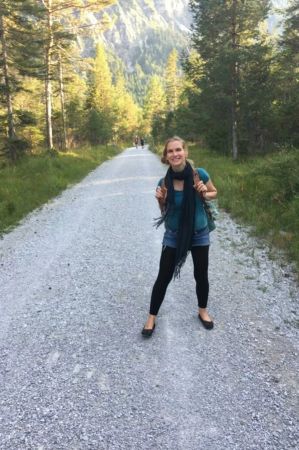 In the further course of the conversation, we first learn that Alexander earns his living in Munich as a guitarist with vocals and his own band. We would be happy to talk about these activities again later, as new perspectives are opening up with regard to the planned "meeting and cultural festival" in Regensburg by the end of October this year. He then talks about his partner Melanie, who was born in 1981, studied ancient history, medieval history and, listen and be amazed with regard to our project, also provincial Roman archaeology in Munich until she was able to do her doctorate in Munich in 2012. Already during her studies she had researched independently along the Lycian Trail and wrote an archaeological-historical hiking guide, which was recently printed and published.
In the further course of the conversation, we first learn that Alexander earns his living in Munich as a guitarist with vocals and his own band. We would be happy to talk about these activities again later, as new perspectives are opening up with regard to the planned "meeting and cultural festival" in Regensburg by the end of October this year. He then talks about his partner Melanie, who was born in 1981, studied ancient history, medieval history and, listen and be amazed with regard to our project, also provincial Roman archaeology in Munich until she was able to do her doctorate in Munich in 2012. Already during her studies she had researched independently along the Lycian Trail and wrote an archaeological-historical hiking guide, which was recently printed and published.
In the meantime, Melanie had also come to us from the mobile home, so that we could get more details directly from her. In her travel guide, Melanie tries to put together the possible routes along the Lycian Way in such a way that they can be implemented for day trips as well as hikes lasting several days. She got to know the real Turkey on foot on old donkey and shepherd paths.
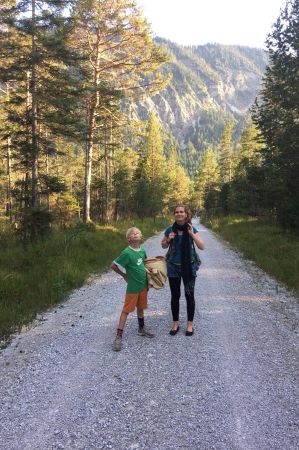 The pure description of the route in her hiking guide is always accompanied by a historical outline of the historically so important Lycian peninsula, that's our impression after the first few pages of reading. In an understandable and entertaining way, one could summarize, the historian and archaeologist Dr. Melanie Heinle background information on the culture and history of Lycia. Interesting aspects of everyday life in antiquity are presented, brief overviews of the latest research results are supplemented by floor plans and maps. Archaeological plans should help to bring the ancient places back to life in the mind's eye.
The pure description of the route in her hiking guide is always accompanied by a historical outline of the historically so important Lycian peninsula, that's our impression after the first few pages of reading. In an understandable and entertaining way, one could summarize, the historian and archaeologist Dr. Melanie Heinle background information on the culture and history of Lycia. Interesting aspects of everyday life in antiquity are presented, brief overviews of the latest research results are supplemented by floor plans and maps. Archaeological plans should help to bring the ancient places back to life in the mind's eye.
So far enough about the travel guide by Melanie Heinle, which can be obtained the following ISBN number: 978-3-85161-106-9 The Lycian Way - On the Trail of Antiquity.
In our conversation, we also came to talk about the current activities that had made it possible for the young couple, together with their son, to travel through several countries in Europe and Africa, due to the granting of a travel grant from the German Archaeological Institute. Melanie Heinle was awarded this travel grant by the German Archaeological Institute for her dissertation, which dealt with the topic "Historical regional studies of the Aiolis in today's western Turkey". So there were hardly any considerations that stood in the way, because such opportunities don't come up very often.
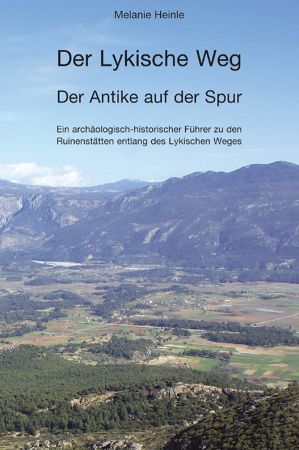 Alexander, more or less a freelancer and a proud father, was also able to prepare for an approximately 1-year absence from Munich, as was his son Vincent, who, by his own admission, hardly ever really missed his teammates. Who, as a four-and-a-half-year-old boy, has the opportunity to go on such a trip, which also enables 24-hour contact with their parents? It's no wonder, then, that Vincent reflects on the many experiences and the linguistic innovations and insights along the way. He was thus able to fall back on a wide range of words, which, coming from different languages, were also clear to him in terms of their meaning. The basic musical knowledge from rock history, which makes Vincent a fan of Bob Dylan and Jimi Hendrix, is probably due to his father. During the journeys, which are managed by Melanie alone, there is enough time to listen to music and to impart a little background knowledge of rock and pop history.
Alexander, more or less a freelancer and a proud father, was also able to prepare for an approximately 1-year absence from Munich, as was his son Vincent, who, by his own admission, hardly ever really missed his teammates. Who, as a four-and-a-half-year-old boy, has the opportunity to go on such a trip, which also enables 24-hour contact with their parents? It's no wonder, then, that Vincent reflects on the many experiences and the linguistic innovations and insights along the way. He was thus able to fall back on a wide range of words, which, coming from different languages, were also clear to him in terms of their meaning. The basic musical knowledge from rock history, which makes Vincent a fan of Bob Dylan and Jimi Hendrix, is probably due to his father. During the journeys, which are managed by Melanie alone, there is enough time to listen to music and to impart a little background knowledge of rock and pop history.
The first destination of their tour was Morocco, always based on tour destinations that are also worked on by the DAI. A GPS automatically transmits the respective tour data to the DAI, which is additionally documented by weekly blogs and pictures. In the future, the DAI would like to create a map similar to a bird's flight route map of all travel grant data that has already been able to use such a travel year. It then went via Italy and the Balkans to Greece and from there to Turkey. With the ferry over the Dardanelles, Canakkale, Didim, Kas and Antalya to Alanya, where we then invited the couple.
The further way will first take the family to Anamur via Gazipasa, then through the Taurus to the Alahan monastery near Mut and then to spend a few days in Cappadocia and on the Nemrud. From there it is planned to drive to Sanliurfa with the archaeological site of Göbeklitepe, then towards Armenia. The journey back is to be continued along the coast of the Black Sea and up the Danube until the beginning of October. Of course, we hope that we can keep in touch and have already loosely planned another meeting for our encounter and culture festival in Regensburg in mid-October. Perhaps in combination with a travel lecture by Melanie and music by Alexander. We will see.
For those who, by the way, still don't know much about the DAI, here is some information:
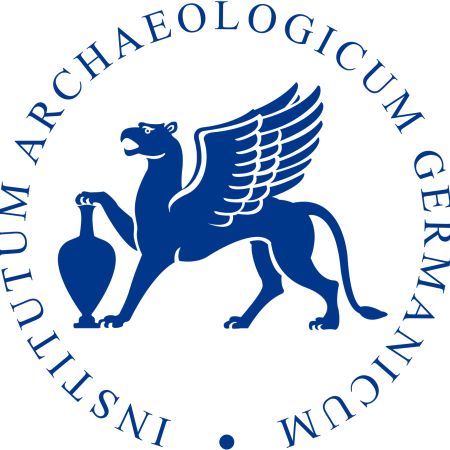 The DAI is a scientific federal institution that belongs to the portfolio of the Federal Foreign Office (AA) of the Federal Republic of Germany. It is directly subordinate to AA. The institution has the right to scientific self-administration. It is an important instrument of German cultural, educational and foreign policy. It is not uncommon for the DAI to act as a pioneer in the initiation of intergovernmental relations. Relationships are maintained with many scientific organizations worldwide. On the other hand, many foreign researchers are members of the DAI in addition to many German archaeologists and representatives of neighbouring disciplines. Branch offices and research stations are maintained in several countries.
The DAI is a scientific federal institution that belongs to the portfolio of the Federal Foreign Office (AA) of the Federal Republic of Germany. It is directly subordinate to AA. The institution has the right to scientific self-administration. It is an important instrument of German cultural, educational and foreign policy. It is not uncommon for the DAI to act as a pioneer in the initiation of intergovernmental relations. Relationships are maintained with many scientific organizations worldwide. On the other hand, many foreign researchers are members of the DAI in addition to many German archaeologists and representatives of neighbouring disciplines. Branch offices and research stations are maintained in several countries.
The DAI carries out archaeological and cultural-historical investigations worldwide and often works together with scientists from the host countries and other international scholars. Traditionally, the Mediterranean and the Near East are the main areas of activity. Since 1979, the DAI has also been doing research worldwide. In the field of archaeology and its related sciences, excavations are carried out, expeditions are made and other projects are carried out. Since 2009, the DAI has been building centres of excellence in research and teaching as part of the foreign science policy initiative.
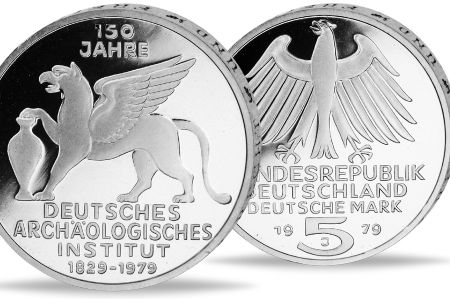 The facility is one of the internationally recognized top research institutes. In order to maintain this standard, the DAI receives special research funds from the Genshagener program of the federal government.
The facility is one of the internationally recognized top research institutes. In order to maintain this standard, the DAI receives special research funds from the Genshagener program of the federal government.
The aim of the DAI is to ensure a deeper understanding of cultures. It would like to make a contribution to the dialogue between cultures. In addition, it should contribute to the high reputation of Germany in the world.
Please read as well: